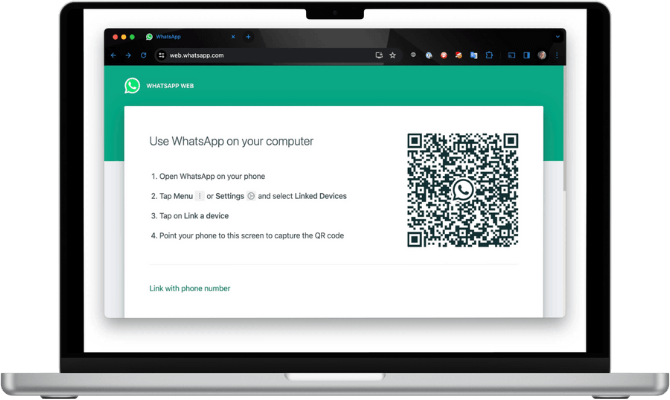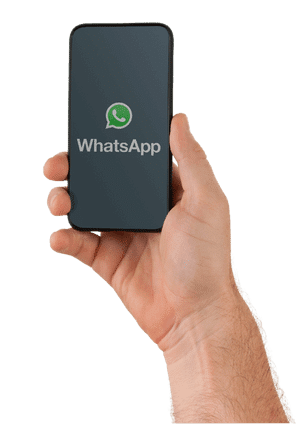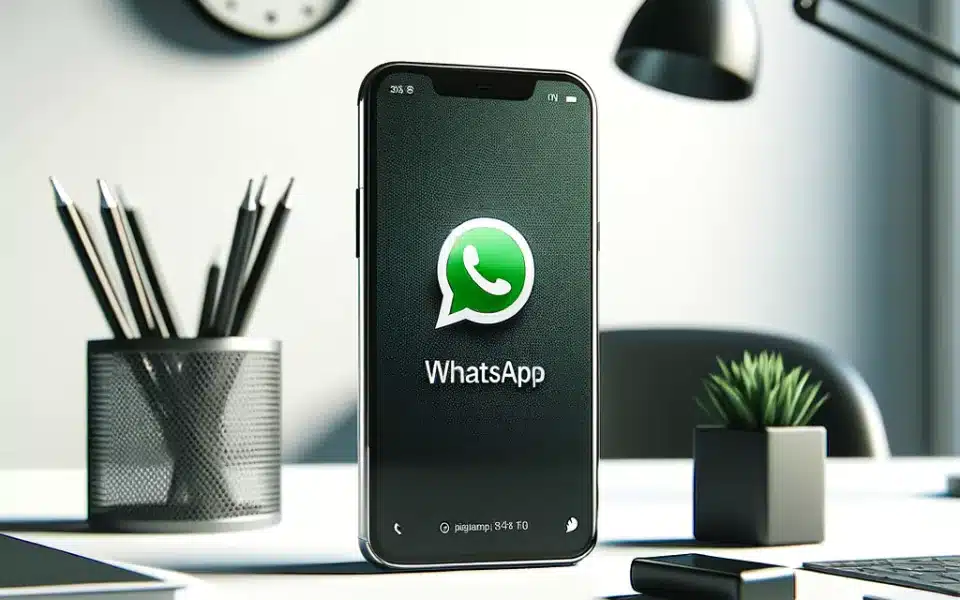WhatsApp, the most used messaging app, connects billions globally. But beyond friendly chats and shared memes, lies a hidden layer of data, tempting to some and concerning to others. This article examines the possibility of WhatsApp data scraping. We will explore exactly what information can be extracted, the methods employed including Python, and the legal and ethical considerations surrounding this practice. Let’s answer the curious question of: “what data can you actually scrape from WhatsApp?”
WhatsApp is used by over 2 billion people in more than 180 countries and 60 different languages!
Table of Contents
- WhatsApp Data Scraping: The Art of the Possible
- Can You Scrape WhatsApp Messages?
- Why Do People And Businesses Try To Scrape WhatApp Data?
- Accessing WhatsApp Messages And Data
- Understanding WhatsApp Data Structures
- Methods for Scraping WhatsApp Messages
- Incognito Agents: The Role of Proxies in WhatsApp Scraping
- Is WhatsApp scraping legal? What are the ethical considerations involved?
WhatsApp Data Scraping: The Art of the Possible
WhatsApp is a bustling marketplace of opinions, trends, and hidden desires, all swirling within the familiar green icon on your phone. Beyond the casual chats and funny memes, lies a treasure of information, revealing how billions of people connect, think, and behave. That’s the hidden world of WhatsApp data, many want to unlock by the art of WhatsApp data scraping. But is it possible to get your hands on this data? And why would you consider scraping WhatsApp?
Approximately 65 billion messages are sent via WhatsApp each day.
Can You Scrape WhatsApp Messages?
Yes, scraping WhatsApp data is technically possible, but it’s important to understand the technical, ethical and legal complexities involved. The Methods of WhatsApp scraping include:
- Web Scraping: Extracting data from the WhatsApp Web interface using browser extensions or dedicated tools.
- Mobile App Scraping: Accessing data directly from the WhatsApp app on your phone using coding (Python libraries) or rooting/jailbreaking the device (not recommended).
While it is possible, WhatsApp scraping faces these technical challenges:
- Encryption: WhatsApp messages are encrypted end-to-end, requiring decryption keys which are not publicly available.
- User Authentication: Accessing data typically requires login credentials, raising privacy concerns.
- Rate Limits: WhatsApp implements limits on data requests to prevent overloading their servers.
- Terms of Service: Scraping personal data without consent violates WhatsApp’s terms of service and could lead to account suspension.
Why Do People And Businesses Try To Scrape WhatApp Data?
Businesses, curious geeks, and governments try to scrape whatsapp messages for many reasons and use cases including:
1. Chatbot Development:
Training Chatbots for Natural Language: Analyzing real conversations can help train chatbots to respond more naturally and effectively to user queries.
2. Personal Archiving and Analysis:
Preserving Memories and Conversations: Individuals can scrape their own WhatsApp messages to create backups, preserve cherished memories, or analyze personal communication patterns.
3. Research Purposes:
Academic Studies: Researchers can study social interactions, language patterns, and the spread of information within WhatsApp groups.
4. Law Enforcement:
Investigations and Evidence Gathering: In certain rare cases, law enforcement agencies may scrape WhatsApp data with legal authorization to gather evidence for investigations.
5. Customer Service:
Improving Customer Support: Businesses can analyze WhatsApp conversations to identify common customer issues, track sentiment, and improve response strategies.
Accessing WhatsApp Messages And Data
There are three main ways to peek inside WhatsApp’s data:
- The Android App: Downloading the app’s data backup file might seem straightforward, but encryption throws a wrench in the works. You’ll need special tools to decrypt and interpret the information.
- The Web App: Similar to the app, accessing data through the web app requires navigating encryption and authentication hurdles.
- WhatsApp’s official API offers limited access to data, focusing primarily on business communication features. For more comprehensive scraping, tools and techniques that circumvent the API are often necessary.
Each method has its own technical challenges. Encryption keeps data locked away, requiring decryption keys or workarounds. User authentication ensures that only authorized users can access data, adding another layer of complexity. And finally, rate limits prevent overwhelming WhatsApp’s servers with scraping requests.

Understanding WhatsApp Data Structures
To effectively scrape WhatsApp data, it’s crucial to first grasp its underlying structure. Here’s a breakdown of its key elements:
1. Chat Databases:
- WhatsApp stores messages, contacts, and group information in chat databases, often encrypted for privacy.
- These databases use SQLite format, a lightweight database commonly used in mobile apps.
- To access and extract data from these databases, you’ll need tools capable of decrypting and interpreting their contents.
2. Message Format:
Individual messages are stored as JSON objects, containing:
- Text content
- Timestamps (creation and delivery time)
- Sender and recipient information
- Media file links (if applicable)
- Metadata (message type, read status, etc.)
3. Contact Information:
Contact details include:
- Phone numbers
- Names (as saved in your contacts)
- Profile pictures
- Status updates
- Group memberships
4. Group Information:
WhatsApp Group details include:
- Group name
- Description
- Creation timestamp
- Member list
- Profile picture
- Message history
5. Media Files:
- Images, videos, audio recordings, and documents are stored separately from text messages, often in compressed formats for optimization.
6. Encryption:
- End-to-end encryption safeguards message content, ensuring only intended recipients can read them.
- This encryption poses challenges for scraping, requiring decryption keys or workarounds to access message content.
7. Metadata:
Additional data provides context and structure, such as:
- Device information
- Location data (if enabled)
- App settings
- Usage patterns

Methods for Scraping WhatsApp Messages
While many websites readily yield their info, WhatsApp, the messaging hub for billions, presents a unique challenge: Encryption. But these two main methods pave the way to overcome this barrier:
1. Scraping WhatsApp Web With Paid Tools
- Gear Up: Enlist a trusty browser extension or dedicated tool like Octoparse or Parsehub.
- Inspect and Point: Use these tools to “poke and prod” WhatsApp Web elements, telling them which data you crave.
- Selective Scrape: Remember, only yours or explicitly permitted group data is ethical and legal. Steer clear of private info!
- Target key data: Focus on gems like group names, member lists, profile pics, or message timestamps. Most tools make this selection a breeze.
- Extract and Export: Once you’ve identified your targets, your tool will extract the data, exporting it into spreadsheets or text files for further analysis.
2. Direct WhatsApp App Scraping With Python
- Coding Credentials: This path requires Python know-how and an understanding of libraries like “whatstk” or “pyp whatsapp.”
- Direct Access: These libraries tap into your phone’s WhatsApp data, offering richer information than Web scraping.
- Cautionary Code: Just like with Web scraping, only scrape data you have permission for and respect everyone’s privacy.
For those comfortable with code, Python libraries offer a powerful way to extract WhatsApp data directly from its source. You will find many of them on GitHub.

Incognito Agents: The Role of Proxies in WhatsApp Scraping
Think of web scraping proxies as undercover agents, pretending to be your device as you scrape WhatsApp data. They route your requests through different IP addresses, obfuscating your true location and identity. This can be crucial for several reasons:
1. Bypassing Rate Limits: WhatsApp frowns upon excessive data harvesting. But with proxies, you can spread your requests across multiple IP addresses, mimicking human behavior and evading those suspicious throttling mechanisms.
2. Accessing Geo-restricted Content: Certain regions might block WhatsApp entirely, or specific features within it. Proxies based in permitted locations can act as teleporting gateways, granting you access to data you wouldn’t normally see.
3. Enhancing Scrape Success: Certain scraping bots or tools get flagged by WhatsApp and become ineffective. Rotating multiple proxies through your scraping activity can help you stay under the radar and keep your operation running smoothly.
Is WhatsApp scraping legal? What are the ethical considerations involved?
Yes it is, but you have to use it in accordance with ethics. This covers:
- Privacy: Respecting user privacy is paramount. Only scrape data you have permission for and avoid invading anyone’s personal space.
- Transparency: Be transparent about your scraping activities and the purpose of data collection.
Related articles:
- Tags:
- how to scrape, python, web scraping, WhatsApp proxies



